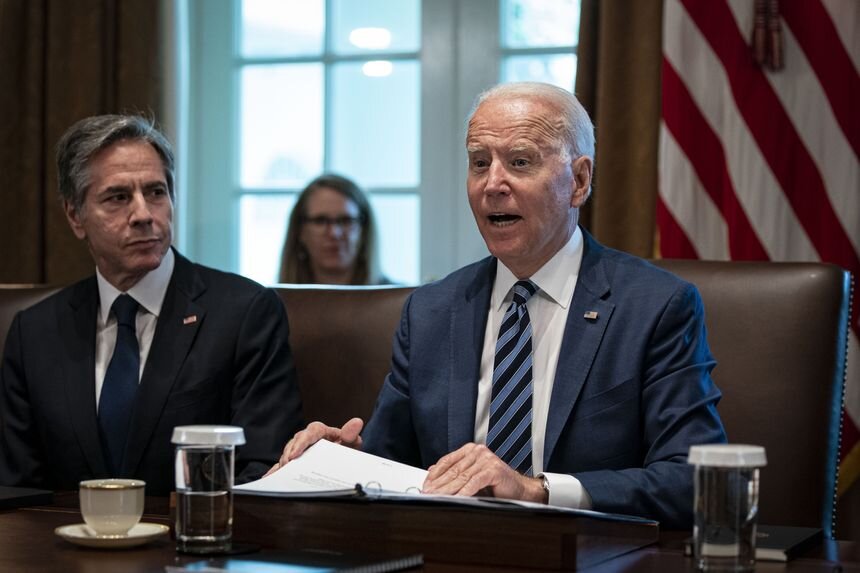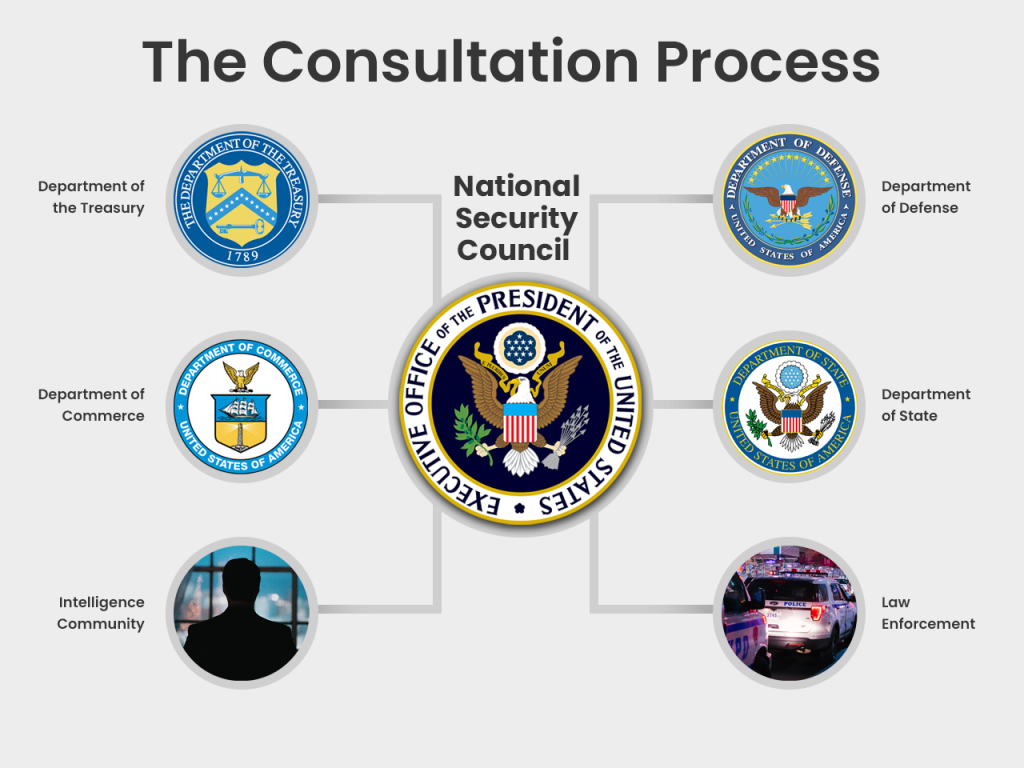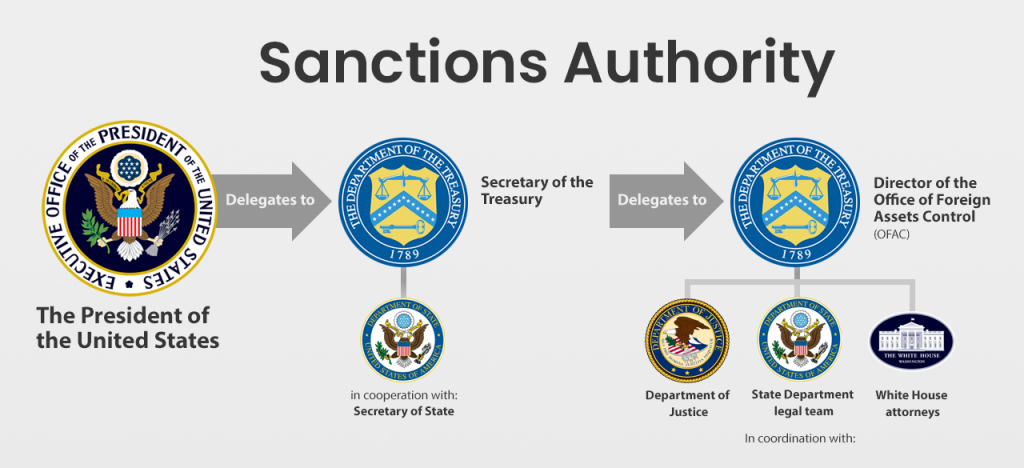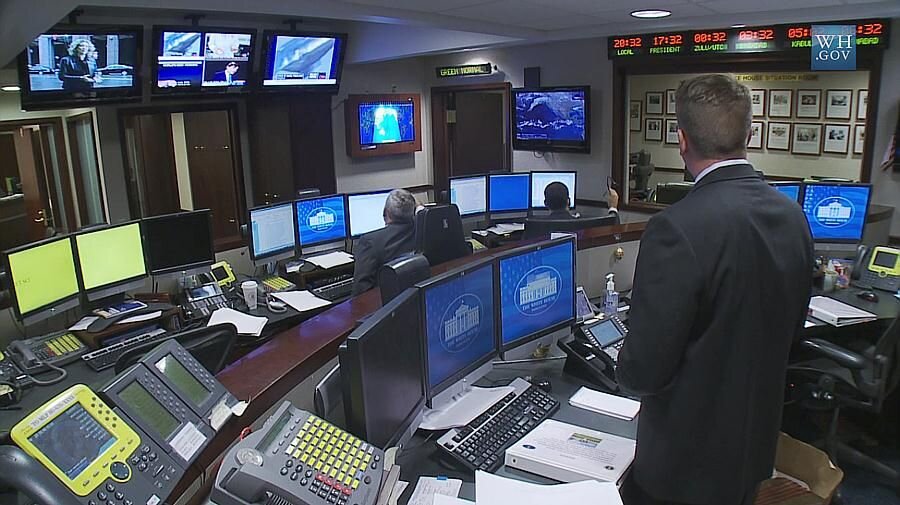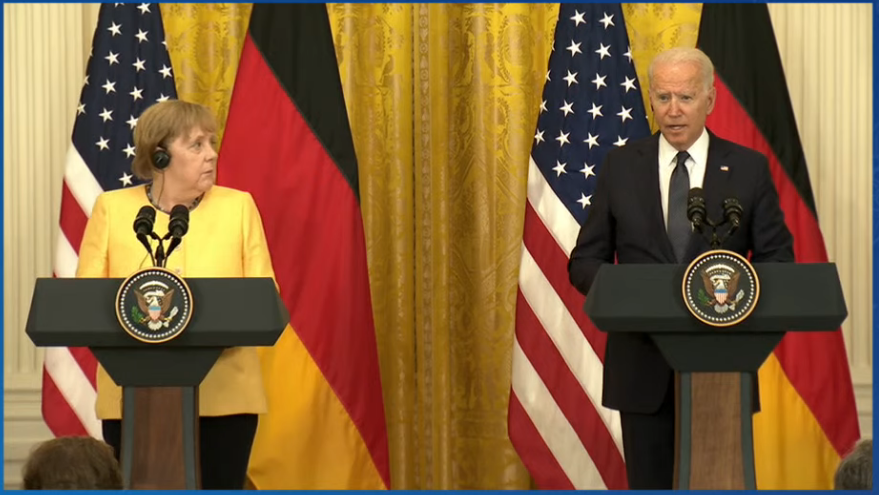Cuba Sanctions & Remittances Topics Today At The White House And Department Of State Briefings
/The White House
Washington DC
22 July 2021
Q Two, it's being reported that President Biden plans to impose sanctions on Cuban officials because of the attacks on protesters. Can you outline the administration's goals with regard to those sanctions?
MS. PSAKI: Sure. Well, I can confirm for all of you that there will be more from the Department of Treasury and the Department of State later this afternoon on sanctions. And the announcement will be coming from then -- from them. But I -- in terms of our approach to Cuba and what we're trying to accomplish, we have, of course, condemned mass detention, sham trials, and disappearances that are attempts to threaten the Cuban people into silence. We continue to call for swift -- the swift release of peaceful protesters who have unjustly been detained. We've made clear over the last week that addressing this moment was a priority for the administration and for President Biden, and that he has -- he had asked his team to look into a range of options that would both help the Cuban people, help provide humanitarian assistance, help look into addressing issues like the lack of Internet access, and that also sanctions authority was a part of those considerations. So this is an announcement that will be coming later this afternoon. I'd also note that we'll continue to engage closely and coordinate with our international partners, from the OAS to the U.N. and others, to collectively condemn the actions of the Cuban government.
United States Department of State
Washington DC
22 July 2021
Sanctioning Cuban Security Forces in Response to Violent Repression of Protests
Antony J. Blinken, Secretary of State
Starting on July 11, tens of thousands of Cubans in dozens of cities and towns throughout their country took to the streets to peacefully demand respect for their fundamental freedoms and a better future. In response, the Cuban regime violently repressed the protests, arresting hundreds of demonstrators simply for exercising their human rights of freedom of expression and peaceful assembly. The actions of Cuban security forces and violent mobs mobilized by Cuban Communist Party First Secretary Miguel Diaz-Canel lay bare the regime’s fear of its own people and unwillingness to meet their basic needs and aspirations.
Today, the United States is imposing sanctions on Minister of the Revolutionary Armed Forces of Cuba Álvaro López Miera and the Cuban Ministry of the Interior’s Special National Brigade or “Boinas Negras” (Black Berets). López Miera and the Special National Brigade have been involved in suppressing the protests, including through physical violence and intimidation. We take this action pursuant to Executive Order 13818, which builds upon and implements the Global Magnitsky Human Rights Accountability Act. We stand with every Cuban seeking a government that respects the human rights and dignity of the Cuban people. We will continue to take action to promote accountability for the Cuban government’s human rights abuses, including through additional sanctions pursuant to Global Magnitsky, as appropriate.
United States Department of State
Washington DC
22 July 2021
MR PRICE: I expect you all have seen the statement from the President, the statement from Secretary Blinken, the statement from the Department of the Treasury, regarding our latest action to hold to account the Cuban regime for its abuses in the aftermath of the protests, the peaceful protests in Cuba. And so, with that, I have nothing but my eagerness and happiness to take your questions.
QUESTION: Okay. Well, let’s start with Cuba, then.
MR PRICE: Okay.
QUESTION: You designated one person and an entity that was already covered by Global Magnitsky sanctions that were imposed by the Trump administration in January. So, I don’t understand why you think that this is such a big deal.
MR PRICE: Well, Matt, let me first give you a bit of context to make sure this is understood in the right light. As we have said, since the onset of the peaceful protests across the island of Cuba, we will stand with the Cuban people, who are exercising their universal rights of peaceful protest, peaceful assembly, freedom of speech. We will look at additional ways we can support them. We have spoken to the formation of a remittance working group. We have spoken about the ways in which we are seeking to expand internet access so that the Cuban people can practice that freedom of expression and have the free flow of information to which they are entitled. We have spoken to our review of how we might augment our staffing at our embassy in Havana.
But we have also said that we are going to hold to account those Cuban individuals and entities responsible for the crackdown on this peaceful protest. And I said yesterday that the Treasury Department’s Office of Foreign Assets Control is exploring designating Cuban officials, Cuban entities, responsible for violence, repression, human rights violations against those who are perpetrating this in Cuba.
So, you are right; we designated through the Global Magnitsky sanctions regime one individual and one entity today. This I do not expect will be the sum total of our actions. We’re going to continue to review what more we can do not only to support the Cuban people, but also, again, importantly to hold to account those who would be so brazen in their efforts and attempts to violate the human rights of the Cuban people. So —
QUESTION: Okay. But I mean, the special brigade of the interior ministry was already covered by Global Magnitsky sanctions. So, you – so you’ve – you’ve added another designation on – I just don’t – the impact of this seems to me whatever the impact would have been – it seems to have been – it seems to be negligible, since they were already covered. So, I don’t quite understand how it is that you are presenting this as some grand new initiative to support the Cuban people, when in fact it’s simply adding another layer, which was really unnecessary, since they already were covered by the sanctions.
MR PRICE: I would make a couple points. Number one, the Global Magnitsky sanctions regime is an important tool we have that is applicable —
QUESTION: It is. But they were already under it.
MR PRICE: — that is – Alvaro Lopez Miera was?
QUESTION: No, I’m talking about the – that’s one person, okay, who most likely doesn’t have any assets or any dealings with American citizens.
MR PRICE: Just – just so – just so no —
QUESTION: So, let’s talk about what the real impact would be, would be if you designated the whole entity of the – a part of the interior ministry, like with the Iran sanctions, okay? That would have a much bigger impact, whatever that impact would be. But the fact of the matter is that they were already covered by Global Magnitsky sanctions. The exact same sanction, the exact same executive order was used to do this, and it doesn’t have any – it doesn’t do anything new.
MR PRICE: Just so we’re not having a conversation just with each other, let me just level set with everyone.
QUESTION: Well, I’ll be – I’m done after that.
MR PRICE: Well, so as Matt alluded to, we have imposed sanctions on the minister of the Revolutionary Armed Forces of Cuba, Alvaro Lopez Miera, as well as the Ministry of the Interior’s Special National Brigade. These – this individual, this entity, we have targeted them as part of our effort – that is not over, to be sure – to hold to account those actors in Cuba who have been responsible for the crackdown, for the repression, for the human rights abuses on those in Cuba who are doing nothing more than exercising their universal rights.
Now, we obviously do have a well-developed sanctions regime in place that covers different elements and entities in Cuba. That said, the embargo and the other sanctions tools – they do have carveouts. They have carveouts for a number of reasons. It is absolutely true that by sanctioning this individual and this entity some of those carveouts are closed, that there will be repercussions and implications for this individual and this entity. And it’s an important signal of our determination to hold accountable those responsible for this.
QUESTION: Specifically what carveouts are closed in that case? What are they not going to get that they were getting before? Just to follow up on Matt’s question, what’s the practical impact of this, or is it largely symbolic?
MR PRICE: Well, there is an important messaging element to this. The Global Magnitsky regime is a valuable tool we have that, again, is not applicable solely in the context of Cuba but the world over, and we’ve used it to good effect, the world over. Now with the Global Magnitsky regime, there are a number of implications, some of which do apply to this individual and this entity, some of which may not, given the rather unique circumstances.
QUESTION: Like weapons, money, food? I mean —
MR PRICE: So, let me give you a couple examples. And now obviously we’re not able to detail specific holdings of entities or individuals, but under this regime all property, and interest in property, in any of the entities that are owned directly or indirectly or with other designated persons that are in the United States or in the possession or control of U.S. persons are blocked and must be reported to OFAC, unless authorized otherwise. In addition, these persons and all property and interest in property of these persons are blocked pursuant to the Cuban Assets Control Regulations. These prohibitions further include the making of any contribution or provision of funds, goods, or services by, to, or for the benefit of any blocked person or the receipt of any contribution or provision of funds, goods, or services from any such person.
So, there are a number of implications. Some of this is highly technical, especially given the intersection with the broader sanctions tools we have applied in the context of Cuba. But this is a meaningful and important step.
QUESTION: I want to also ask you about remittances. Because the President said that he’s looking for ways to get remittances directly to the people, not to the regime, as well as looking at the internet being restored, if there was some technical way that that could be done. On remittances, I interviewed Marco Rubio today, and he said it’s just not possible, because – unless the regime changes its policy of requiring that all remittances be deposited in government banks, be converted into pesos, which are useless in terms of any value, even on the island, compared to dollars. So, he said there’s no point in trying to do that, unless the regime changes its policy.
MR PRICE: What the President said earlier this week is that the administration would form a remittance working group to study this very issue. It’s namely to identify the most effective way possible or potentially to get those remittances directly into the hands of the Cuban people. This is a concern we share. The – this administration shares this concern with many in Congress that remittances would find their way into Cuban Government coffers. This is precisely why we are looking closely at the issue, to determine tools, tactics, procedures that might be possible to allow us to push forward with our goals, and that is, in the first instance, supporting the Cuban people, providing them with the much-needed humanitarian relief that so, clearly, they are calling for and desperate for, without buttressing the regime.
So, this working group was just announced earlier this week. Don’t have any more updates to share, at this time. But this concern about funds potentially going into Cuban Government coffers, but also this ultimate objective, supporting the Cuban people, supporting their needs, supporting their aspirations – it’s also something we share with members of Congress, and so we’ll continue to work closely with them.
QUESTION: And anything – has anything been advanced on the internet?
MR PRICE: Well, this is also something that the President spoke to for the first time, at least in detail, this week. And what we said is that we will work closely with two entities, really – the private sector, as well as with Congress – to identify viable options to make the internet more accessible to the Cuban people. This is a goal that’s important, in its own right. Freedom of expression, the ability of people anywhere and everywhere to freely communicate is something the United States always stands for, always supports. But it’s especially important now because the Cuban regime, we have seen in recent days, has enacted these blackouts, these internet shutdowns, precisely in an effort to stifle the protest, to silence the Cuban people.
And, of course, this does nothing to satisfy the legitimate aspirations of the Cuban people. This is a sign of a government that, in some ways, is scared of its own people. And so, it’s especially important to us, given the actions that the Cuban regime has undertaken in recent days, to explore again with Congress and the private sector ways we can support the ability of the Cuban people to do what people, the world over, are entitled to do: exercise their freedom of expression, to share ideas without these sort of technical impediments.
Yes.
QUESTION: Thanks. On the remittances, are you saying we will find a way to allow remittances and to get this money in the Cuban hands, or are you still saying that there is a chance that this won’t work and there is no way to make that money – doesn’t go in the regime coffers?
And also, on – on the embassy staffing, do you have any timing, any date for when it will happen? Will it happen in the next days or weeks or month?
MR PRICE: Well, on your first question, we’re forming a working group precisely to find out. We know that the underlying goal is something that certainly has the support of this administration; it has the support of other key stakeholders, including Congress, including many Americans, including Cuban Americans. And that is the objective of supporting the Cuban people, supporting their needs, also helping them to achieve their broader aspirations. We’re studying it because, again, we want to make sure or we want to test the proposition, I should say, that this is something we can do consistent with a countervailing priority, and that is to ensure that we don’t do anything that buttresses or strengthens the regime. So, we’re taking a close look at the issue. The – again, the working group was just announced this week, so as we have more details to share, we will.
Similarly, with our staffing plan for the embassy, we are – that plan was just announced this week. We’re taking a close look at a couple things: what our needs are, and what we could do with additional resources and additional people from our embassy in Havana, but also taking a close look at a number of factors, including the safety and security of people who may be going to Havana, some people who may be returning to Havana. That’s obviously a top priority for us around the world. It’s, as we talked about in this room the other day, certainly something we’re taking a close look at in the context of Cuba given one of the reasons for our drawdown in the first place.
So as soon as we have —
QUESTION: Is that a matter of weeks or a month?
MR PRICE: I wouldn’t want to put a timeframe on it. Obviously, the – our ability to engage directly with the Cuban people, to support the Cuban people, to hear directly from them, to engage in consular activity – it’s a priority for us. We’re working as fast as we can, but we are also doing it consistent with other priorities I laid out.
QUESTION: And deliver visa to Cuban people is one of the goals?
MR PRICE: I’m sorry?
QUESTION: To deliver visas to Cuban people is one of the goals?
MR PRICE: We are looking at a number of ways we might be able to support the Cuban people and to hold the regime to account. We’ve spoken to several of them, including the new designations today, but I wouldn’t want to get ahead of that.
United States Department of the Treasury
Washington DC
22 July 2021
SPECIALLY DESIGNATED NATIONALS LIST UPDATE
The following individual has been added to OFAC's SDN List: LOPEZ MIERA, Alvaro (Latin: LÓPEZ MIERA, Álvaro), Cuba; DOB 26 Dec 1943; POB Havana, Cuba; nationality Cuba; Gender Male (individual) [GLOMAG].
The following entity has been added to OFAC's SDN List: BRIGADA ESPECIAL NACIONAL DEL MINISTERIO DEL INTERIOR, Cuba; Target Type Government Entity [GLOMAG].


